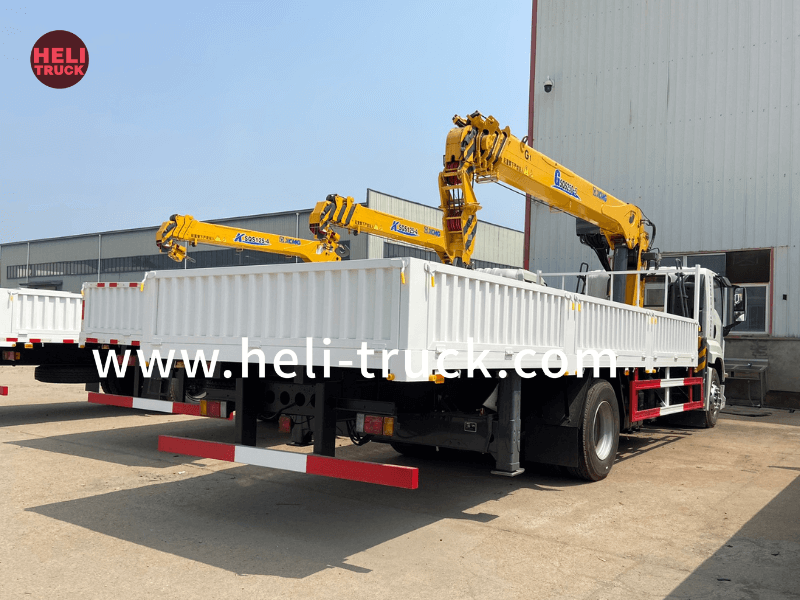Introduction

Garbage compactor trucks play a crucial role in maintaining cleanliness and hygiene in our communities. These specialized vehicles are designed to efficiently collect, compact, and transport solid waste to disposal sites. In this article, we will explore the significance of garbage compactor trucks in community services, their operation, benefits, and challenges they face.
History of Garbage Compactor Trucks
The concept of garbage collection dates back to ancient civilizations, where waste was often disposed of in designated areas. However, https://www.heli-truck.com/sinotruk-howo-road-sweeper-truck/ as we know it today has its roots in the early 20th century. The first motorized garbage collection trucks were introduced in the United States in the 1920s, revolutionizing waste management practices.
These early garbage trucks were basic in design, with a simple open bed for collecting waste. Over time, advancements in technology led to the development of specialized garbage compactor trucks equipped with hydraulic systems for compacting waste. This innovation allowed for more efficient waste collection and transportation, paving the way for the modern garbage compactor trucks used in community services today.
Operation of Garbage Compactor Trucks
Garbage compactor trucks are equipped with a hydraulic compactor mechanism that compresses solid waste to maximize the truck's carrying capacity. The operation of these vehicles typically involves several key steps:
1. Collection: Garbage compactor trucks are dispatched to designated collection points in the community to pick up waste. Collection schedules may vary depending on the area and the volume of waste generated.
2. Compaction: Once the waste is loaded into the truck, the compactor mechanism is activated to compress the waste. This process reduces the volume of the waste, allowing the truck to carry more garbage before needing to unload.
3. Transportation: After compaction, the garbage compactor truck transports the waste to a disposal site, such as a landfill or recycling facility. Proper disposal of waste is essential to prevent environmental pollution and maintain public health.
Benefits of Garbage Compactor Trucks
Garbage compactor trucks offer numerous benefits to communities and the environment. Some of the key advantages include:
1. Efficient Waste Collection: Garbage compactor trucks are designed to collect and transport large volumes of waste in a single trip, reducing the need for multiple trips and minimizing fuel consumption.
2. Improved Hygiene: By compacting waste and sealing it within the truck's body, garbage compactor trucks help prevent the spread of odors, pests, and disease-causing bacteria in the community.
3. Environmental Protection: Proper waste management is essential for protecting the environment. Garbage compactor trucks play a vital role in ensuring that waste is disposed of in an environmentally responsible manner, reducing the risk of pollution and habitat destruction.
4. Cost-Effective: While the initial investment in garbage compactor trucks may be significant, their long-term benefits in terms of efficiency and cost savings make them a cost-effective solution for waste management in communities.
Challenges Faced by Garbage Compactor Trucks
Despite their many benefits, garbage compactor trucks also face several challenges in the course of their operation. Some of the common challenges include:
1. Maintenance Issues: Garbage compactor trucks are subjected to heavy use and may experience wear and tear over time. Regular maintenance and servicing are essential to ensure the smooth operation of these vehicles.
2. Traffic Congestion: Navigating through busy urban areas can be challenging for garbage compactor trucks, leading to delays in waste collection and disposal. Proper route planning and coordination with local authorities are essential to address this issue.
3. Illegal Dumping: Some individuals may resort to illegal dumping of waste in unauthorized areas, bypassing the regular waste collection system. This not only poses environmental hazards but also undermines the efforts of garbage compactor trucks in maintaining cleanliness in the community.
4. Recycling Challenges: While garbage compactor trucks are effective in collecting and transporting solid waste, challenges remain in promoting recycling and waste reduction initiatives. Educating the community about the importance of recycling and providing adequate recycling facilities are essential steps in addressing this issue.
Conclusion
Garbage compactor trucks are indispensable assets in community services, playing a vital role in maintaining cleanliness, hygiene, and environmental sustainability. These specialized vehicles offer numerous benefits, including efficient waste collection, improved hygiene, environmental protection, and cost-effectiveness. However, they also face challenges such as maintenance issues, traffic congestion, illegal dumping, and recycling challenges. By addressing these challenges and promoting responsible waste management practices, garbage compactor trucks can continue to serve as valuable tools in keeping our communities clean and safe.
